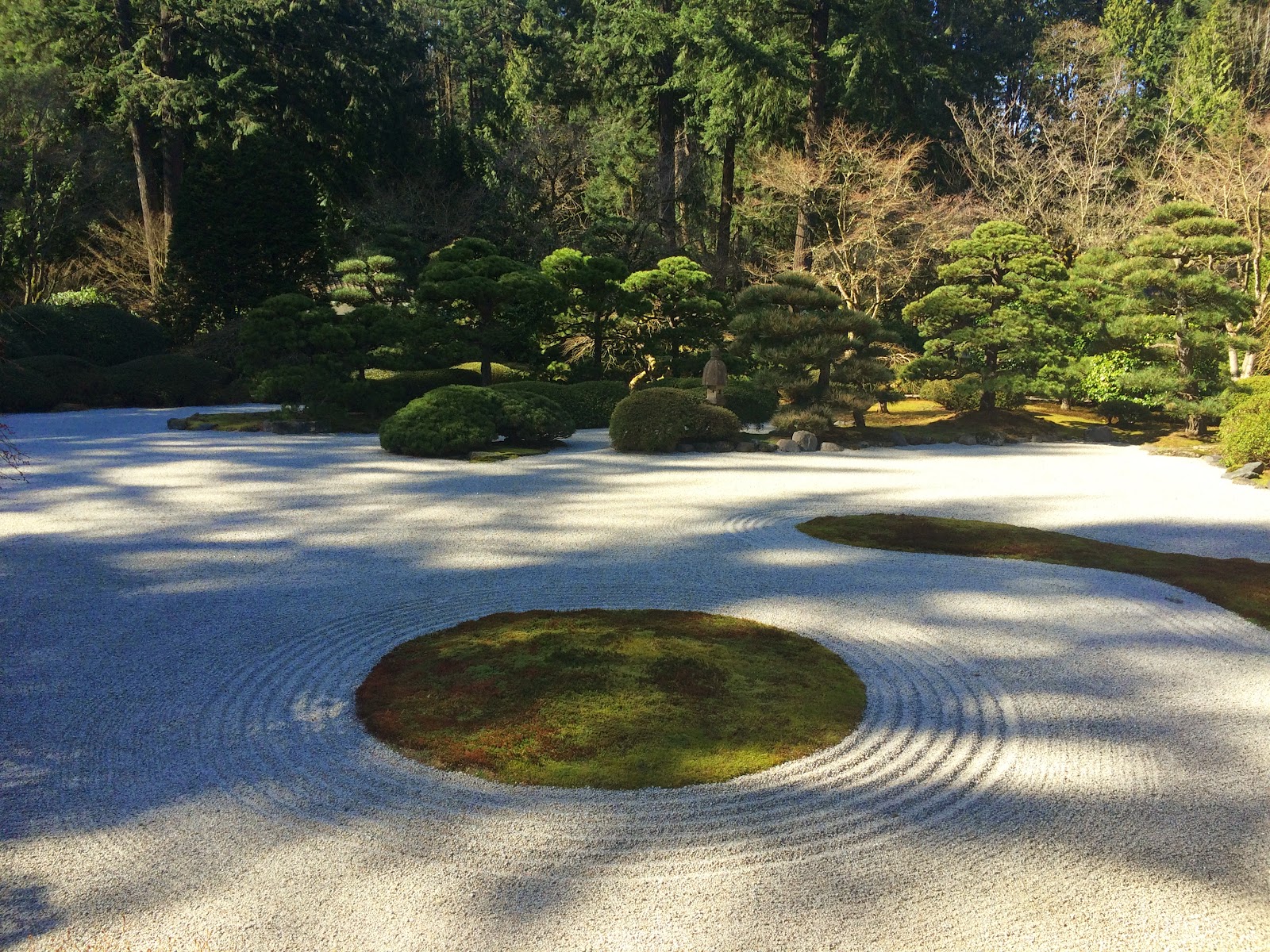Another day, another adventure in Portland. This weekend I found my way the the Portland Japanese Gardens, one of the city's gems. From the second you walk through the gates the landscape inspires complete tranquility and serenity, quite impressive considering it is merely minutes away from the heart of downtown. While it incorporates a breathtaking view of skyscrapers in the distance, it is tucked away in the hills above the city (right next to Washington Park, for those of you familiar with the area). Five sections are features within: the Flat Garden, Strolling Pond Garden, Tea Garden, Natural Garden, and Sand and Stone Garden.
The Portland Japanese Garden incorporates traditional elements used in Japan. Each element is purposefully placed to benefit the aesthetic, functional, or symbolical, and artfully arranged taking into account the entire scene, much like a painting. Here are just a few elements and their meanings:
Stones are chosen based on their size, shape, and position and are generally found in groups of two, three, five, or seven. They are highly valued in Japanese culture and represent stability and long life. They can also be a metaphor for mountains, islands, or earth. The combination of stone and water can be a physical representation of the yin and yang, the hard and soft.
Water can have many different meanings within the garden, but ponds are often meant to represent larger bodies of water found in nature (the reason they are asymmetrical, just slightly imperfect). Even the way the water flows is significant. For example east to west is meant to carry evil away, while north to south can bring good luck. Water basins found throughout have the functional and ritual use of cleansing, particularly before tea ceremonies.
Zen Gardens are large sand or gravel open spaces (symbolizing water) with designs drawn into the surface using a rake. The process of creating these designs was traditionally used to aid in meditation. The gravel flows around larger rocks, or islands of moss, just as the water current flows around obstacles.
Plants and Vegetation are carefully arranged to imitate nature, however everything is carefully manicured and controlled, constantly reminding the viewer of human presence. The intricate pruning represents discipline, as well as the artistic hand behind every aspect of this manipulated nature.
Japanese Gardens are essentially nature on a human scale, meant to be immersive but not overwhelming. They are meant to spark self contemplation and mediation while momentarily releasing temporal worries and thoughts. The Portland Japanese Gardens capture this ideal, and offer a calming and refreshing escape from the city. It is somehow comforting to be in nature meticulously built for humans, to enjoy being outside without being overwhelmed by the sheer grandeur of the great outdoors.






No comments:
Post a Comment